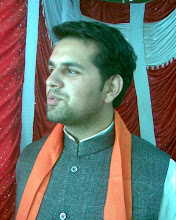
Republic
where supreme power rests in the people and their elected representatives or officers, as opposed to one governed by a king or similar ruler; a commonwealth
Ancient India
![]() Political System
Political System
Ancient period started ending after 1001 C.E. when Sultan Mahmud defeated Jaipal. But was in practice for more than 3,000 years before that – the longest period of continuous civilizational history. Hundreds of kings but by and large uniform system of laws throughout the country known as Bharatvarsha.
John Mayne said in July, 1878 “Hindu Law has the oldest pedigree of any known system of jurisprudence, and even now it shows no signs of decrepitude. At this day it governs races of men, extending from Cashmere to Cape Comorin, who agree in nothing else except their submission to it.”
Contrast this with Europe – less than fifty kings, but no common set of laws. Right to make laws considered fundamental to sovereignty.
Legislative System in Ancient India
Laws codified as Smritis
Smritis were supposedly written by Rishis Some Rishis - Manu, Atri, Vishnu, Harita, Yajnavalkya, Usanas, Angiras, Yama, Apastamba, Samvarta, Katyayana, Brihaspati, Parasara, Vyasa, Sankha, Likhita, Daksha, Gautama, Satatapa and Vashishtha Names of rishis represent schools / universities and not individuals. Smritis were regularly modified by the schools / universities. Smritis decided the duties and role of kings. A king was prohibited from making laws or even interpreting laws. Muslim invaders destroyed the universities, this eliminated the mechanism that modified Smritis and kept them always in line with times. Many Muslim kings continued to follow the Smritis. After the destruction of universities, many ministers wrote commentaries of Smritis; but no king dared even comment on a Smriti leave alone make a law.
condition in Muslim Kingdoms
In the 16th century, Dalapati wrote an encyclopaedic work on Dharmasastra called the Nrisimha-prasada. He was a minister of the Nizamshah Dynasty of Ahmednagar which ruled at Devagiri (Dowlatabad). Todarmalla, the famous finance minister of the Moghul Emperor Akbar, compiled a very comprehensive work on civil and religious law known as Todarananda.
Two Relevant Points
There is no commentary of any Smriti written before 1000CE.Even in Islam, a king is not supposed to make laws.
Judicial System in ANCIENT INDIA
King was supposed to be a fountain of justice in a figurative manner.
Actual dispensation of justice was done by a complex system consisting of a hierarchy of people’s tribunals and the Royal Court headed by the Chief Judge. People at large participated through Kula, Puga and Sreni. There was more than an arm’s length distance between the persons exercising the legislative function and the judicial system. King’s will had no role to play in the dispensation of justice and it was neither possible for him to show any favours or disfavours. Overall monitoring of judiciary was exercised by the universities, while day-to-day superintendence rested with the King.
Gantantra & Republic
Gantantra has been treated as Hindi / Sanskrit translation of Republic, which is not correct. Gantantra – “A state in which law making and interpretation is influenced or controlled by independent institutions (and persons) of learning”. GAN = to think, to count; as in GANIT, GANESH. GANAH = a collection, group, followers, a community formed for a common purpose and a division of the army consisting of 27 elephants, 27 chariots, 81 horses and 135 soldiers on foot
Gantantra & Bharatvarsha
Bharat = Bha + Rat (Immersed in light). Bharatvarsha = the region where knowledge rains. Hindu = H (Sky) + Indu (Moon) = Moon in the sky. Ancient Indian system of Gantantra allowed territorial expansion – any king joining the system would continue to rule while giving up his legislative and judicial powers. This was a political unity which could not be grasped by the British. Hence the claim that British united India.
ठोकर लगे तो राह बदलता नहीं हूँ मैं !!
रख दूँ जहाँ कदम नए रास्ते बनें !
खीचीं हुई लकीरों पर चलता नहीं हूँ मैं !!

god jobe sourav g.
ReplyDeletegod bless you /
nice ..but tooooooo long.
ReplyDelete